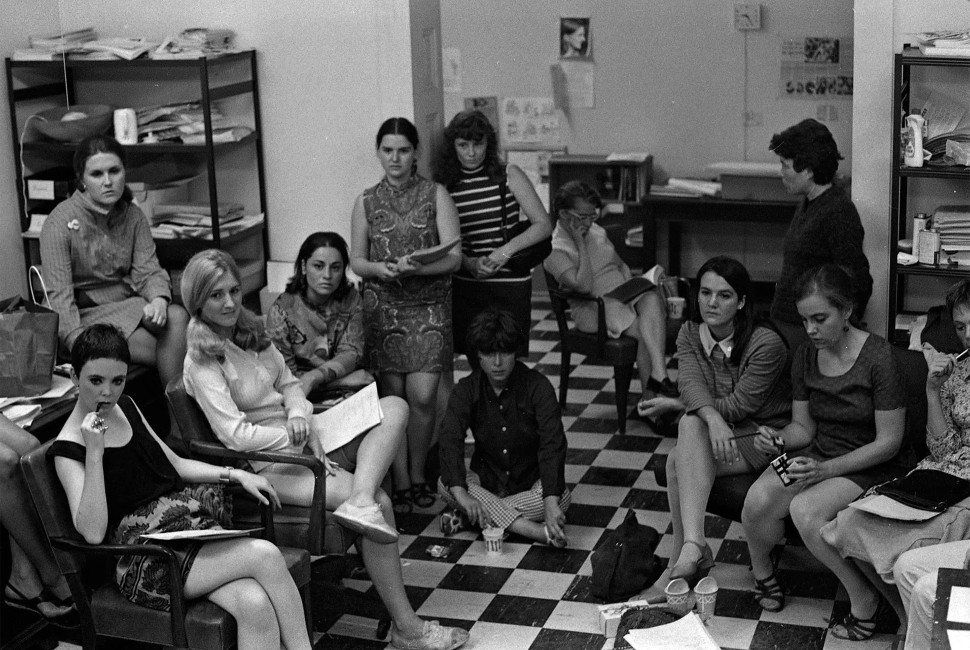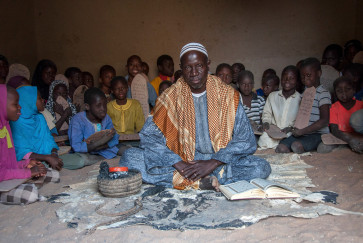This fall, The Block Museum of Art at Northwestern University turns a lens on the protest movements of 1968 – 1972 and a groundbreaking 1974 feminist film festival.
Beginning Wednesday, Sept. 18, The Block will present “Dissident Sisters: Bev Grant and Feminist Activism, 1968–72,” an original exhibition showcasing the documentary photography of Bev Grant, an American artist whose work captured the fervor and vitality of the feminist movement, anti-war protests and the Black liberation movement during a transformative period in American history. The exhibition will be on view through Sunday, Dec. 1.
In a joint presentation with the Gene Siskel Film Center of the School of the Art Institute of Chicago, The Block will also co-host a series of screenings, discussions and events that pay homage to “Films by Women/Chicago ’74,” a groundbreaking festival that championed women filmmakers and marked a watershed moment in the history of cinema.
Political movements through the eyes of an artist and participant
During a pivotal period in American public life, Grant documented political movements in and around New York City through a practice she termed “participant-based photojournalism.” Between 1968 and 1972, she captured the actions of the New York Radical Women (NYRW), the Black Panthers, the Young Lords Organization and protests against the Vietnam War.
“‘Dissident Sisters: Bev Grant and Feminist Activism, 1968‒72’” is an invitation to engage with a pivotal era through the eyes of an artist who participated in the movements she documented,” said Ruslana Lichtzier, the 2023–2024 Block art history graduate fellow, who curated the exhibition with Academic Curator Corinne Granof. “We invite visitors to explore this resonant exhibition and to reflect on the enduring impact of feminist activism and social justice struggles.”
Opposition to the Vietnam War was a unifying force for various social justice movements, and Grant’s photography played a pivotal role in documenting these efforts. The exhibition will feature images from significant anti-war rallies, including the April 1968 event in New York’s Central Park where GIs protested the war and young men burned their draft cards.
Grant’s photographs capture not only protest imagery but also everyday work, including community programs such as the Black Panther Party's Free Breakfast program. Featuring 17 photographs by Grant that were recently acquired by The Block, the exhibition tells stories of civil rights and social justice movements in the United States.
Within the exhibition, the fervent moment of the late 1960s is contextualized with ephemera — political posters, pins and newspapers — selected from the collections of the Northwestern Libraries. The exhibition includes items from the libraries’ wide-ranging holdings in Women’s History, Second-Wave Feminism and the Long 1960s. Alongside ephemera from these archives, the exhibition will also display contemporaneous work of Chicago artists Peggy Lipschutz, Pearl Hirshfield and the Chicago Women’s Graphic Collective, underscoring the intersectional commitment of feminist practices of the era.
“The Block Museum’s exhibitions and collection are focused on activating art’s power as a form of insight, research and knowledge creation that makes human experience visible and material. The lived American histories that Bev Grant brings to light in her work will find resonance and new meaning with our students and audiences at this moment,” said Lisa Corrin, The Block Museum Ellen Philips Katz Executive Director.
An exhibition keynote conversation with Grant in person is planned for 6 p.m. on Wednesday, Oct. 9. The museum’s Block Cinema will host the artist in conversation for a special screening of “Activist Lens: Bev Grant & Newsreel Films,” a look at two documentaries she contributed to as part of her work with the iconic Third World Newsreel collective, at 7 p.m. on Thursday, Oct. 10.
‘A pivotal moment in Chicago’s film culture’
“Films by Women/Chicago ’74” originally took place at the Gene Siskel Film Center in September 1974 at the height of the feminist movement. Organized by an all-woman collective, including several Northwestern University students and faculty members, and with support from the Chicago Tribune, the festival presented a diverse array of more than 70 cinematic works from around the world, ranging from mainstream Hollywood productions to activist documentaries, arthouse films and animations. It was the most comprehensive survey of women’s cinema in the United States to date and left an indelible mark on Chicago’s cultural landscape.
“The ‘Films by Women/Chicago ’74’ festival was a pivotal moment in Chicago’s film culture, significantly impacting the landscape of film-going and film studies across the city,” said Michael Metzger, Pick-Laudati Academic Curator for Cinema and Media Arts. “The festival was instrumental in reviving the history of women in film from the very beginnings of cinema, and it continues to inspire us to explore and amplify those voices that have yet to be fully recognized.”
The Gene Siskel Film Center will kick off the anniversary celebration with a week-long series running Monday, Sept. 23 through Friday, Sept. 27, featuring screenings that revisit some of the most original and daring films and filmmakers showcased in 1974.
At Block Cinema, joint film programming continues through November, with an exploration of multiple facets of the 1974 festival, concentrating on short films, documentaries, animation and recently restored landmarks. Highlights of The Block’s programming include an evening of short films and discussion with original festival organizers B. Ruby Rich and Patricia Erens, as well as screenings of films by Grant and Dorothy Arzner, the only female studio filmmaker in Hollywood during the 1930s and ’40s.
“The 1974 festival was groundbreaking for the Film Center and Chicago, and also received national and international attention,” said Gene Siskel Film Center Director of Programming Rebecca Fons. “Partnering with Block and working with the women who led the charge 50 years ago has been a rich and rewarding experience.”
Ticketing and program details are available on The Block Museum and the Gene Siskel Film Center websites.


